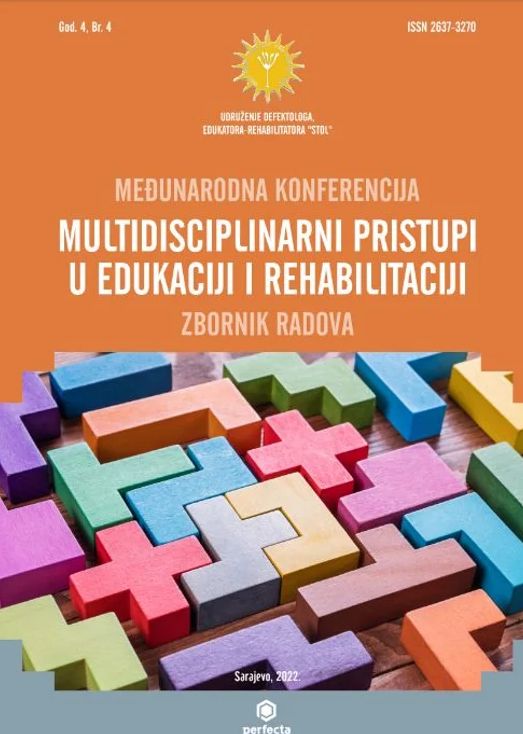ISPITIVANJE RAZLIKA U POREMEĆAJIMA SLUŠNOG PROCESIRANJA KOD DJECE RAZLIČITIH UZRASNIH GRUPA
EXAMINATION OF DIFFERENCES IN AUDITORY PROCESSING DISORDERS IN CHILDREN OF DIFFERENT AGE GROUPS
Author(s): Ahmet KantićSubject(s): Social Sciences, Education
Published by: Udruženje defektologa, edukatora-rehabilitatora (STOL)
Keywords: auditory processing; auditory processing disorders (APD); ANOVA,;
Summary/Abstract: Auditory processing is the ability to listen, understand, and respond to information we hear through our auditory channels. Auditory Processing Disorder (APD) is a sensory disorder that most often affects speech comprehension and learning, and also creates difficulties in processing auditory information. The study was conducted with the aim of determining differences in auditory processing disorders (APD) in children of different age groups. A total of 560 children were tested. In order to determine the existence of auditory processing differences between the five age groups, a statistical test of variance analysis (ANOVA) was used to compare the average values achieved on subtests. By analyzing the results of our research, statistically significant differences between age groups can be found, where there is a trend of achieving better results with an increase in the chronological age of the respondents. Since during the normal distribution examination Kolmogorov-Smirnov test showed that some of the results achieved did not follow normal distribution, the results were also analyzed by a nonparametric Kruskal-Wallis test, and consent with the ANOVA test results was noticeable. The measuring instrument used in this study is the Test Battery for testing Auditory Processing Disorders APD 1 (Heđever, 2015) and is highly useful standardized measuring instrument.
Journal: Multidisciplinarni Pristupi u Edukaciji i Rehabilitaciji
- Issue Year: 4/2022
- Issue No: 4
- Page Range: 23-35
- Page Count: 13
- Language: Bosnian, Croatian, Serbian

